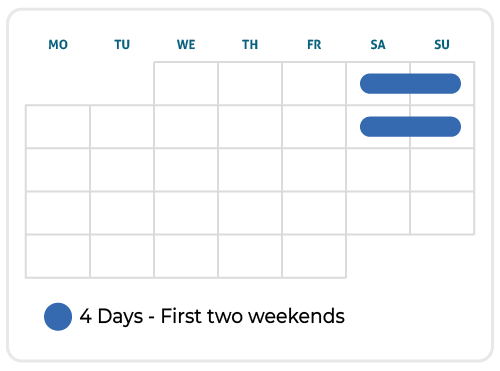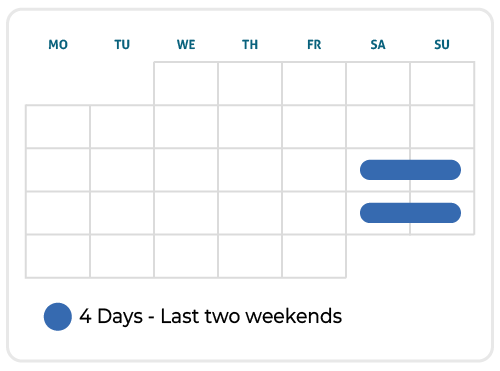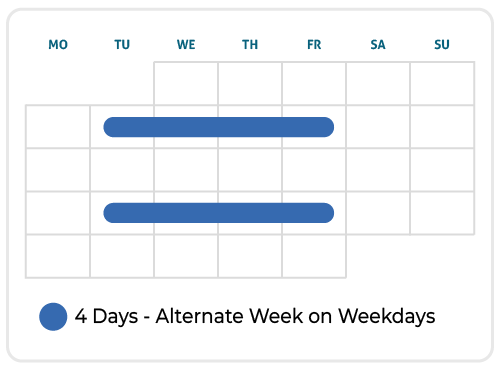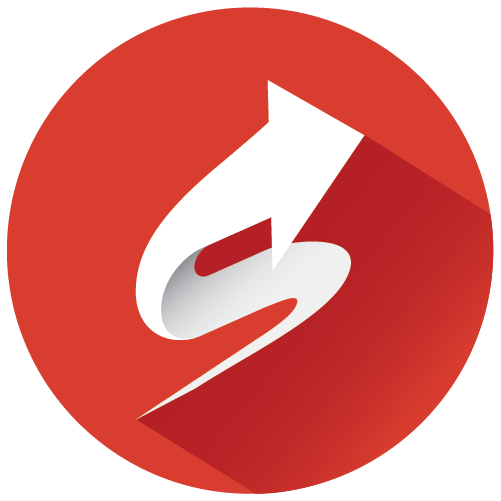CTFL Training Program Overview Kingsport, TN
Are you tired of being rejected for QA roles despite years of testing experience? Do recruiters dismiss you because you lack "formal certification"? Are you stuck doing manual testing while certified testers get promoted to automation and test architecture roles? This program exists to fix that injustice. The testing industry has a dirty secret: experience alone doesn't cut it anymore. Companies use ISTQB certification as a filter mechanism. Without it, your resume gets binned before a human even reads it. HR systems are programmed to prioritize certified candidates. You can have a decade of testing experience, but if you're not CTFL-certified, you're invisible to 60% of quality opportunities. We're here to make you visible. This isn't another generic testing course with outdated Waterfall examples and theoretical mumbo-jumbo. We teach you the ISTQB syllabus through the lens of real-world testing scenarios - Agile sprints, CI/CD pipelines, exploratory testing, and risk-based approaches that modern teams actually use. Our instructors are testing professionals who've broken production, caught critical bugs, and built testing strategies for actual products, not just PowerPoint presentations. We've engineered this program for working testers who can't afford to quit their jobs to study. You get flexible weekday evening and weekend batches, all fully interactive and recorded. Beyond the training, you receive targeted exam preparation: 1000+ practice questions that mirror the actual ISTQB exam style, 8+ full-length mock tests, and performance analytics that identify your weak areas. We don't just teach you testing; we guarantee you pass.
PMP Training Course Highlights Kingsport, TN
ISTQB-Accredited Training Provider
Learn from an officially recognized training partner whose curriculum is vetted and approved by the International Software Testing Qualifications Board.
Taught by Practicing Test Professionals
Stop learning from academics who've never shipped software. Our instructors are active QA leads, test managers, and SDET professionals working on real products.
Flexible Schedule Options
Choose from weekday evening batches, weekend-only training, or intensive 3-day bootcamps designed specifically for employed testing professionals.
Exam-Focused Methodology
Master the ISTQB syllabus efficiently with 18+ hours of structured, hands-on training that cuts through theoretical fluff and focuses on what's actually tested.
Comprehensive Practice Arsenal
Crush your weak spots with 1000+ exam-style questions, 8+ full-length simulators, and detailed performance reports showing exactly where you're losing marks.
24/7 Expert Support
Get immediate answers from ISTQB-certified testing professionals through dedicated Slack channels - no generic support agents, only people who actually understand testing.
Corporate Training

Ready to transform your team?
Get a custom quote for your organization's training needs.
Upcoming Schedule



Skills You Will Gain In Our CTFL Training Program city83647
Test Design Techniques
Stop randomly clicking through applications hoping to find bugs. You'll learn systematic black-box and white-box techniques - equivalence partitioning, boundary value analysis, decision tables, and state transition testing - that ensure comprehensive coverage and reduce redundant test cases.
Defect Management
Learn to write defect reports that developers actually act on instead of marking as "Cannot Reproduce." You'll master severity vs. priority distinctions, root cause analysis, and defect lifecycle management that prevents bugs from slipping into production.
Test Planning & Estimation
Build realistic test strategies that account for actual project constraints instead of fantasy timelines. You'll develop risk-based testing approaches, learn to estimate testing effort using proven techniques, and create test plans that stakeholders trust.
Requirements Analysis for Testability
Identify ambiguous, incomplete, and untestable requirements before development starts. You'll learn to ask the right questions during refinement sessions, spot gaps that cause production defects, and become the quality gatekeeper your team desperately needs.
Test Automation Strategy
Understand when to automate and when manual testing is more effective - something most "automation engineers" get catastrophically wrong. You'll learn the test automation pyramid, ROI analysis, and how to avoid the maintenance nightmare of over-automated test suites.
Testing in Agile & DevOps
Adapt traditional testing principles to modern delivery models without sacrificing quality. You'll master continuous testing practices, learn to integrate testing into CI/CD pipelines, and understand your role in a cross-functional agile team.
Who This Program Is For
Manual Testers
QA Engineers
Test Analysts
Software Developers Transitioning to QA
Business Analysts Involved in Testing
Fresh Graduates Entering Software Testing
If you lead projects and meet PMI's mandatory experience requirements, this program is engineered to get you certified.
CTFL Certification Training Program Roadmap Kingsport, TN
Why get CTFL-certified?
Stop getting auto-rejected by ATS systems
Stop getting auto-rejected by ATS systems that filter out non-certified testers regardless of your actual experience.
Command higher salaries in QA roles
Command higher salaries in QA roles - certified testers earn 15-25% more than their uncertified peers in city83647.
Unlock senior QA positions
Unlock senior QA positions like Test Lead, QA Manager, and Test Architect that explicitly require ISTQB certification.
Eligibility & Prerequisites
Unlike many certifications, CTFL has no formal prerequisites. There are no mandatory education requirements, no minimum years of experience, and no application approval process. This makes it the most accessible entry point into professional software testing. However, accessibility doesn't mean easy - the exam has a 65% pass threshold and tests your understanding rigorously.
No Formal Experience Required: You can take the exam even if you're completely new to software testing, though practical experience significantly improves pass rates.
No Educational Prerequisites: There's no degree requirement. The certification is open to anyone committed to learning software testing fundamentals.
18 Hours of Training (Recommended): While not mandatory, ISTQB strongly recommends completing accredited training. Our program fulfills this recommendation and dramatically increases your first-attempt pass rate.
Pass the 40-Question Exam: You need to score at least 26 out of 40 (65%) to pass. The exam is one hour long, closed-book, and consists of multiple-choice questions testing your understanding of the ISTQB Foundation Level syllabus.
Course Modules & Curriculum
Lesson 1: Risk Management Framework
Identify what can derail your projects before it happens and build comprehensive response strategies. Master both qualitative and quantitative risk analysis techniques, including Monte Carlo simulations and decision trees that enable data-driven risk decisions.
Lesson 2: Quality Management Systems
Build quality into your processes rather than inspecting it later. Learn the difference between quality planning, assurance, and control. Master quality tools like control charts and Pareto analysis to drive continuous improvement and prevent costly rework.
Lesson 3: Procurement & Contract Management
Procurement is a key area of the Project Management Professional exam and essential to professional project delivery. Learn to manage vendor contracts, conduct negotiations, and select the right contract types. This PMP course online module teaches practical approaches to vendor evaluation, risk allocation, and performance monitoring, ensuring your projects stay on schedule and within budget.
Lesson 1: Project Execution Leadership
Lead project teams through successful delivery while managing resources, resolving issues, and maintaining momentum. Learn to direct project work effectively, acquire and develop team members, and create reporting systems that inform rather than overwhelm stakeholders.
Lesson 2: Monitoring & Control Systems
Implement control systems that catch problems early and enable corrective action. Master integrated change control procedures, performance measurement techniques, and variance analysis methods that keep projects on track and stakeholders informed.
Lesson 3: Agile & Hybrid Approaches
Modern project management requires agility. This PMP certification course explores agile, predictive, and hybrid delivery approaches - helping you understand when and how to apply each. Learn Scrum ceremonies, Kanban flow metrics, and hybrid governance techniques that integrate flexibility into traditional structures. These topics are a major part of the current Project Management Professional exam content outline, making this lesson essential for every PMP-certified professional.
Lesson 1: Project Closing & Professional Responsibility
Execute proper project closure procedures and understand your ethical obligations as a certified project management professional. Learn to capture lessons learned effectively, manage contract closure, and navigate ethical dilemmas using the PMI Code of Ethics.
Lesson 2: Exam Strategy & Practice
Develop test-taking strategies specifically designed for the PMP exam format. Learn question analysis techniques, time management strategies, and how to approach situational questions that test your judgment rather than just knowledge recall.
Lesson 3: Final Review & Certification Readiness
This capstone lesson brings everything together. You'll review every process group, knowledge area, and agile concept included in the PMP course online curriculum. Our instructors guide you through final assessments, identify weak areas, and ensure full exam readiness.
Lesson 1: What is Testing and Why It Matters
Understand why software testing exists and why "it works on my machine" is never acceptable. Learn the fundamental objectives of testing, distinguish between testing and debugging, and grasp why testing cannot prove the absence of defects - only their presence. Master the seven testing principles that form the foundation of the ISTQB body of knowledge.
Lesson 2: Testing Throughout the Software Development Lifecycle
Stop treating testing as a phase that happens after development. Learn how testing activities integrate into Waterfall, V-Model, Agile, and DevOps lifecycles. Understand test levels (component, integration, system, acceptance) and test types (functional, non-functional, structural, change-related) that ensure comprehensive quality coverage.
Lesson 3: Static Testing & Early Defect Detection
Discover the most cost-effective testing technique that catches defects before code execution. Master review types (informal, walkthrough, technical review, inspection), learn structured review processes, and understand how static analysis tools catch issues that dynamic testing misses entirely.
Lesson 1: Test Planning and Control
Build test strategies that align with project risks and business priorities instead of generic "test everything" approaches that waste time. Learn to define test objectives, estimate effort realistically, allocate resources effectively, and create entry/exit criteria that prevent premature release decisions.
Lesson 2: Test Monitoring and Control
Implement tracking mechanisms that provide genuine visibility into testing progress and product quality. Master test metrics that matter (defect density, test coverage, pass/fail rates), learn to identify when testing is falling behind, and understand how to report quality status to stakeholders without sugarcoating risks.
Lesson 3: Test Analysis and Design
Transform requirements into systematic test conditions and test cases. Learn to identify testable features, design test cases that maximize defect detection, and prioritize testing based on risk. Understand the crucial difference between test conditions, test cases, and test procedures that most testers confuse.
Lesson 1: Black-Box Testing Techniques
Master specification-based testing techniques that don't require code knowledge: equivalence partitioning for reducing redundant tests, boundary value analysis for catching off-by-one errors, decision table testing for complex business rules, and state transition testing for systems with distinct operational modes.
Lesson 2: White-Box Testing Techniques
Learn structure-based testing that examines internal code paths. Understand statement coverage, branch coverage, and path coverage - when each is appropriate and how to measure them. Apply these techniques to ensure thorough testing of critical code sections.
Lesson 3: Experience-Based Testing
Recognize when formal techniques aren't enough and targeted exploration is necessary. Master error guessing, exploratory testing, and checklist-based testing that leverage tester intuition and domain knowledge to find defects systematic techniques miss.
Lesson 1: Test Organization and Independence
Understand the benefits and drawbacks of different testing team structures. Learn when independent testing adds value versus creating bottlenecks, and grasp the psychological factors affecting testing effectiveness - why developers make poor testers of their own code.
Lesson 2: Test Planning, Estimation, and Strategies
Develop realistic test plans that account for actual project constraints. Master estimation techniques (expert-based, metrics-based, Wideband Delphi), define risk-based testing approaches that focus effort where it matters, and create test strategies that adapt to different project contexts.
Lesson 3: Defect Management and Incident Logging
Write defect reports that get acted upon instead of ignored. Learn the anatomy of an effective bug report, understand defect lifecycle management, master severity vs. priority distinctions, and implement defect tracking processes that drive quality improvement.
Lesson 1: Types of Test Tools
Navigate the overwhelming landscape of testing tools and understand which ones actually deliver ROI. Learn categories of test tools (test management, static analysis, test execution, performance, monitoring) and grasp their appropriate use cases - not every team needs every tool.
Lesson 2: Effective Tool Implementation
Avoid the common trap of tool implementation failure. Understand the risks of introducing testing tools without proper planning, learn pilot project approaches, and master the factors that determine successful tool adoption versus expensive shelfware.
Lesson 3: Test Automation Principles
Understand the fundamentals of test automation without diving into specific tools. Learn the test automation pyramid, grasp when automation provides ROI versus becoming a maintenance nightmare, and understand the skills and infrastructure required for sustainable automation.





